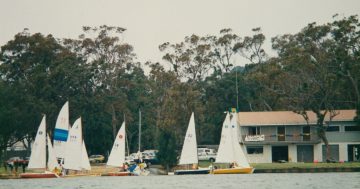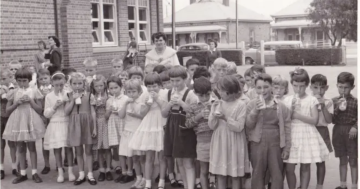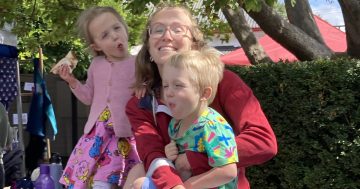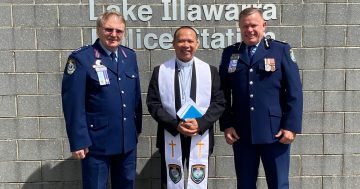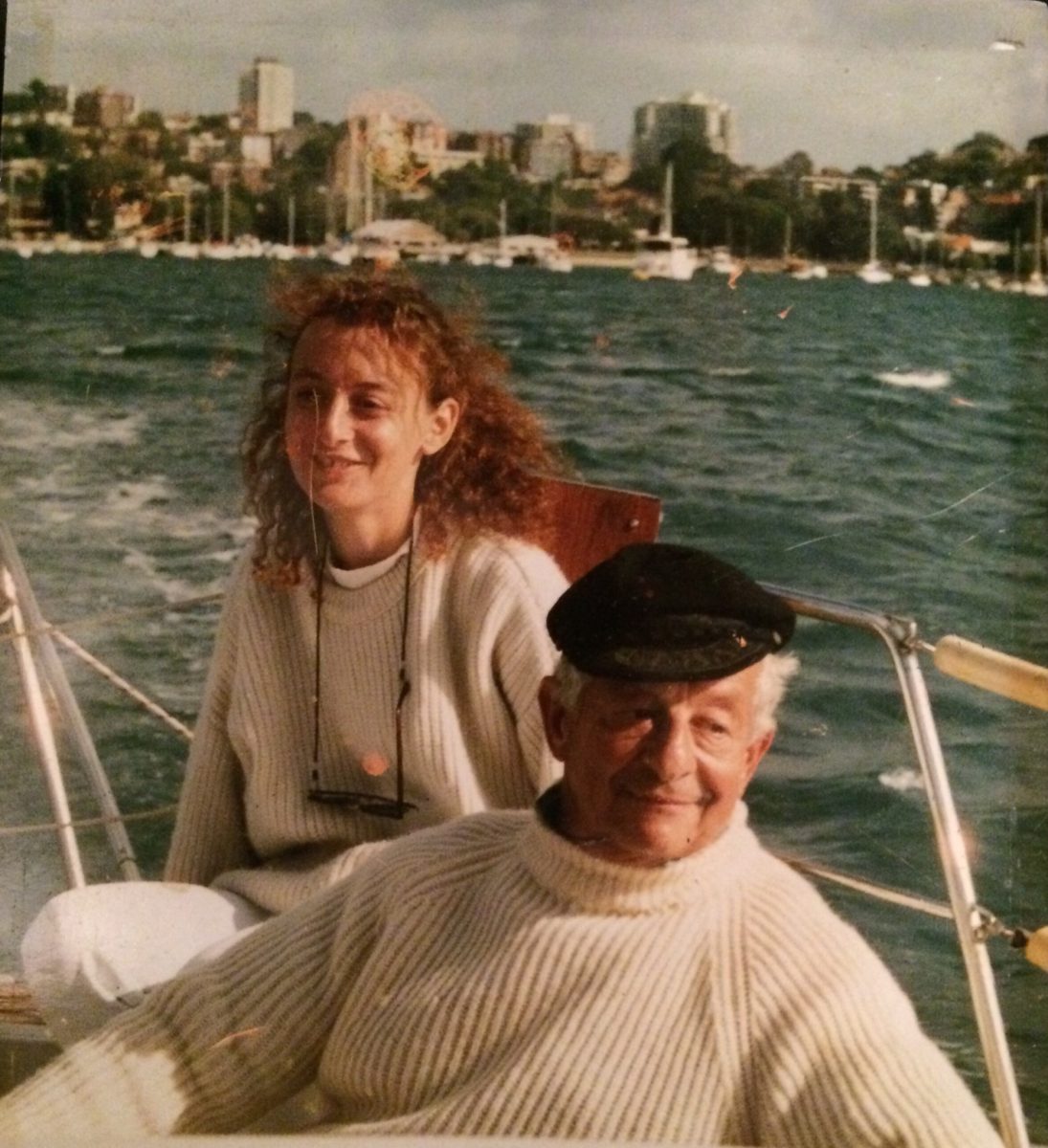
The author and her father, a couple of lifetimes ago, doing what made them both happy. Not convinced the matching jumpers were A Thing – even back then. Photo: Supplied.
For those of us without fathers anymore, we don’t need a day in September to remind us.
Like the rest of you without a father today, I’m sure you remember him well. Mine was, if he’d been born in Australia, what you’d call a larrikin.
If he wasn’t making a ton of money, he would be losing it, hand over fist. He loved the good things in life: women, scotch, sailing, red cars that went faster than the other colours, food that was bad for you and cigars – mostly in that order.
He loved to be the centre of attention, to make people laugh. He didn’t care much for custom, rarely did things the way other people did, and even more rarely behaved like a father.
But he did teach me a lot. He taught me to smoke. Cigars first, then I wafted on to cigarettes. He taught me how to pour the perfect Scotch. For him, that was a glass full of the stuff, “without any crap in it”. He taught me that I could pretty much always find him when he was at home – just follow the scent of cigar smoke. He taught me how to go for the wrong bloke.
But my favourite lesson was how he taught me to dance. It was always in restaurants or at weddings, somewhere in public where he’d just gather me up, and lob my feet down on his and we’d swan around the room with me clinging on for dear life.
When he was around, he would tell me stuff. I don’t know if he thought it would actually help a young woman growing up, but at least we got to talk. Not about things Dads talk to their daughters about, but mostly always about him and whether he could get away with it.
He used to tell me stuff over the years, stuff that he probably should not have, and allowed me and my sister to do pretty much what we wanted to. He tried discipline once or twice, but wasn’t very good at it and mostly left it to my mum.
He also wasn’t very good at marriage – it wasn’t until he met a wonderful Frenchwoman – not a few women after he divorced my mum – that he learned what true love was, and became a much better husband. Or at least he told us he was. But then, so did she.
But I think it was when we went sailing that I felt closest to this man. Maybe because it was the antithesis of the place where he was the saddest. A grim, war-torn Germany where he was bullied, discriminated against and felt he belonged nowhere.
I’m ashamed that I didn’t know about those bad days until he was near death and started telling stories about his early life in Berlin. He’d speak in near incomprehensible German about them to his wife, who’d relay them, I’m guessing in a censored version, to us. I had no idea.
When we went sailing, he would have this look on his face that you knew all was well with the world, or as well as it could be with such a troubled soul. He’d wear this daggy blue cap which told you, the minute he put it on, he was The Captain. He’d yell orders at us – and we’d yell back rude words (so very bravely, because our voices disappeared in the wind) so it always helped if he had proper crew aboard rather than just my sister, myself and our scared boyfriends.
He lived till he was 90, fighting pretty much all the way. Fighting against just about everything, from what he was no longer allowed to eat to being too weak to get behind the boat’s tiller.
Gone but impossible to forget.
Original Article published by Sally Hopman on Riotact.









